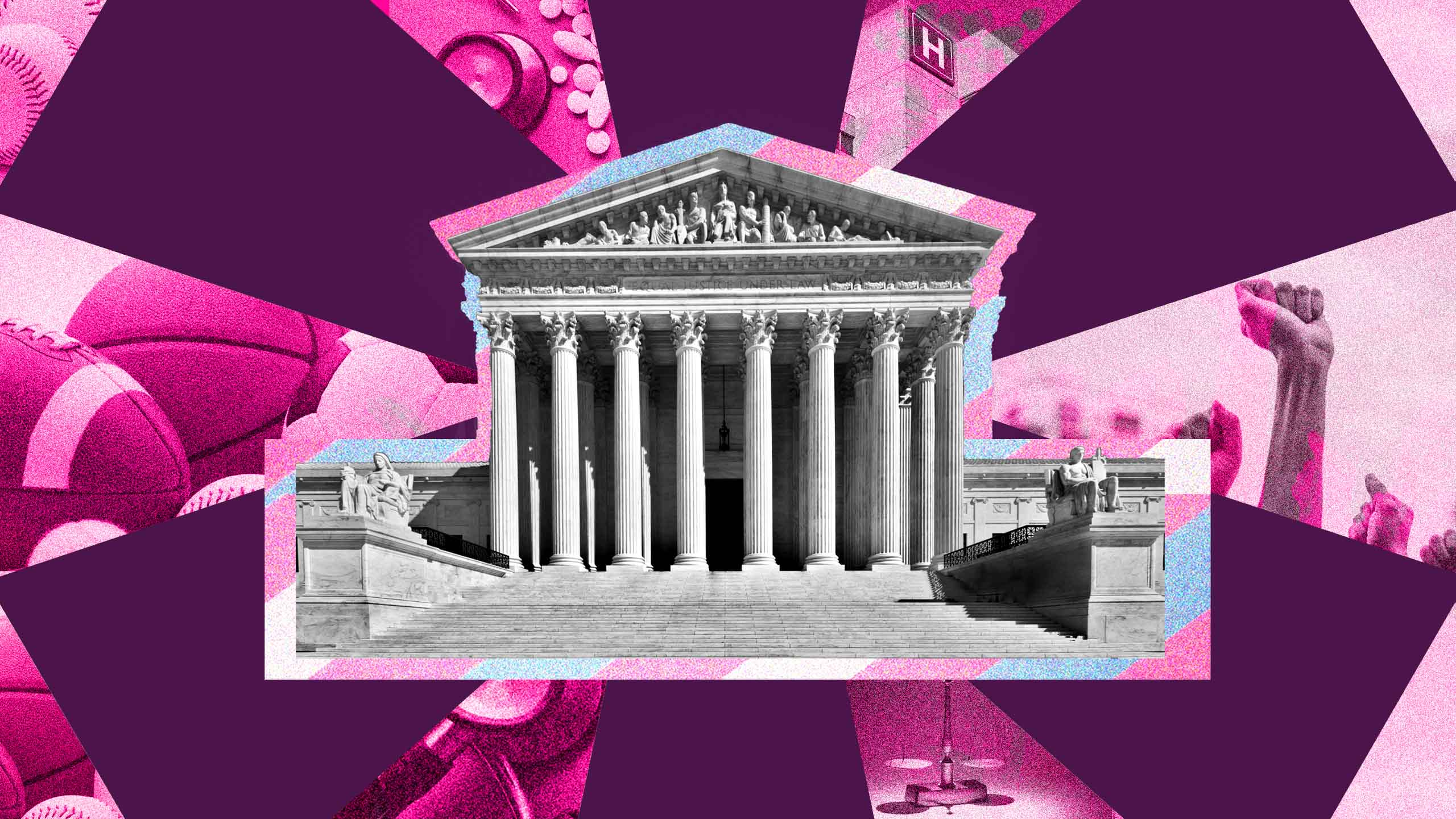Following this fall’s midterm elections, as conservative state lawmakers begin to prepare for their state’s legislative sessions, many are leaning into their transphobic campaign promises.
These legislatures continue to push further and further with restrictions on trans rights even as important cases, such as a lawsuit against an Arkansas law that bans gender-affirming care for trans minors, work their way through the federal court system.
Meanwhile, the Senate and House has just passed the Respect for Marriage Act, meant to shore up federal protections for gay marriages in case the Supreme Court overturn the Obergefell ruling in the next few years. Both the Arkansas case and the Respect for Marriage Act are stark reminders that, ultimately, LGBTQ2S+ rights will be decided in the courts—and the most important cases will likely get appealed all the way to the Supreme Court. The court system will be particularly important for trans people, especially at SCOTUS, which doesn’t have a deep history of trans-related precedence to build upon.
Thankfully, trans people will have an important voice in the room when these cases eventually hit the Supreme Court. Last Wednesday, 10 trans attorneys from the National Trans Bar Association were admitted into the Supreme Court bar, becoming the latest in a small group of openly trans lawyers to gain the ability to argue cases in front of the highest court in the U.S. In order for an attorney to be able to argue cases before the high court, they must be admitted to the SCOTUS bar, similar to how attorneys must be a member or have the sponsorship of a member of the state bar association wherever they practise law.
Their appointment to the SCOTUS bar comes at a critical time as the divide over trans and LGBTQ2S+ existence has only deepened and far-right militias are seemingly marching against every drag show across the country.
The Supreme Court has essentially become the place where American law is made and decided, because the Senate filibuster essentially stops the perpetually closely divided U.S. Senate from creating or modifying existing laws.
Historically, LGBTQ2S+ people have made many of their rights gains in the courts, with Lawrence v. Texas banning anti-sodomy laws, and a string of SCOTUS cases helping to pave the way for marriage equality prior to 2015.
There has never been an openly trans lead attorney on a SCOTUS case before, though ACLU attorney Chase Strangio was at the plaintiff table during the Bostock v. Clayton County case, representing Aimee Stevens, a trans woman who was fired from her job at a funeral home when she transitioned. The oral arguments in that case have already begun to set the table for historic rulings on trans issues.
Much of the discussion between justices in Bostock revolved around hypotheticals about trans bathroom usage and other unrelated trans issues besides the employment question at hand. Though the Bostock ruling explicitly put off deeper trans-related employment issues besides whether it was legal to fire someone for being trans, it’s clear that the justices already have future rulings on their mind.
But we’ve also seen some backsliding as the Court has turned more conservative of late, and anti-LGBTQ2S+ groups are rushing to get their cases in front of it. On Monday, the high court heard a case by a business owner who makes wedding websites, who argued that she shouldn’t be required to make them for same-sex couples. Rather than wait for an actual gay couple to request her services, the owner teamed up with the Alliance Defending Freedom, a right-wing legal clearing house for major LGBTQ2S+ cases, to pre-emptively sue for the right to discriminate against gay and lesbian couples under the auspices of freedom of speech.
“Deep divisions in the Senate have rendered the federal legislature useless for LGBTQ2S+ rights.”
Just last month, the 9th circuit court ruled that a beauty pageant could ban trans women from competition, in the name of “freedom of speech.” The court ruled that including trans women would infringe on the pageant organizers right to declare trans women not capable of being examples of “ideal womanhood.”
Deep divisions in the Senate have rendered the federal legislature essentially useless for LGBTQ2S+ rights. Federal legislators may pass stopgap bills meant to prevent the most catastrophic effects of potential SCOTUS overreach on marriage equality—but all of the power to decide how queer and trans people live their lives centres on the high court. There are no openly LGBTQ2S+ Supreme Court justices, and there has never been an openly trans federal judge at any level. Previously, trans lawyers have been few and far between in even arguing critical cases at the highest level.
Wednesday’s appointments are a watershed moment—albeit one that mostly slipped by the attention of the general public. With these appointments, trans people will finally be able to argue for themselves in greater numbers, just as the most important trans rights cases start to hit the high court.
There are plenty of these cases on their way. In the Texas legislature, which only meets for one session every two years, several bills promising escalating criminal punishments for doctors and parents who support, care for and treat trans teens have already been pre-filed. In total, dozens of anti-trans bills have already been pre-filed across the U.S. since the midterm elections last month. The fate of all of these bills will end up in the hands of the very conservative Supreme Court justices currently in charge of the U.S. legal system.
The cases may be decided by a group of nine cisgender people with little to no connection with the trans community, but at least it’s now more likely that in order to rule against us, the justices will have to look an actual trans person in the face during arguments.


 Why you can trust Xtra
Why you can trust Xtra


